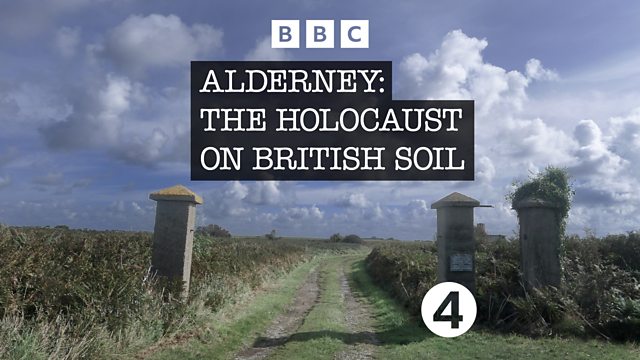Alderney - The Holocaust on British Soil
Christine Finn travels to Alderney, one of the Channel Islands, to tell the harrowing story of the Nazi labour and concentration camps that operated there during World War Two.
Journalist Christine Finn travels to Alderney, one of the Channel Islands, to tell the harrowing story of the Nazi labour and concentration camps that operated there during World War Two.
Unlike Jersey, Guernsey and Sark, almost all of Alderney's residents were evacuated to England in June 1940.
Thousands of forced and slave labourers were brought to Alderney by the Organisation Todt to build fortifications as part of Hitler's Atlantic Wall. Housed in a network of camps, the majority came from the Soviet Union (rounded up after Germany's invasion in June 1941) but there were also French Jews, Spanish Republicans, North Africans - in fact almost 30 nationalities.
Eye-witness testimony from survivors described a catalogue of atrocities committed by the Germans - how large numbers of workers perished from the hard labour, systematic starvation, extreme ill-treatment and outright murder. Some prisoners died in transport to and from the island, and some who were too ill to work were sent back to the continent presumably for extermination.
Christine is accompanied by Colin Partridge, a retired architect and former jurat of the Alderney Court. He's part of an expert panel appointed by Lord Pickles - who leads the government鈥檚 work on post-Holocaust initiatives - to examine the surviving archival evidence in order to determine how many died on Alderney during the Occupation and how many forced, slave and volunteer workers were brought there. This includes conscripted labourers and volunteer workers who were not subject to such inhumane treatment.
The findings of the Expert Review will be published later this year and their aim is to put an end to almost 80 years of speculation. They are searching through archives scattered across Europe and it is painstaking work - prisoner numbers fluctuated, records were removed or destroyed by the Germans before the end of the war, or they are inaccurate. Key information from the post-war exhumations of the so-called Russian cemetery has been lost. Eye-witnesses describe corpses being thrown into the sea.
Christine and Colin visit SS Lager Sylt. This Operation Todt labour camp was probably built in the summer of 1942 and taken over by the SS in March 1943 with the arrival of SS Baubrigade 1- a construction brigade of 1000 prisoners from Sachsenhausen and Neuengamme concentration camps in Germany. Sylt then became a subcamp of Neuengamme.
We also visit Lager Norderney. Sylt is often said to be the only SS concentration camp on British soil - but Lager Norderney came under the control of two OT officers in 1943 who were members of the SS and who wore their SS uniforms in camp. During this time, Norderney also became the main camp for Jewish prisoners on the island. Eye-witness testimony describes violence and brutality as a daily occurrence. In 1944, the camps were shut down and most of the inmates were transported back to continental Europe. Norderney is now the location of the island's main holiday campsite.
Contributors include:
Dr Gilly Carr, a British archaeologist and academic. She is the Channel Islands representative for the International Holocaust Remembrance Alliance (IHRA) and is coordinating the Expert Review.
Dr Marcus Roberts, a founding director of jTrails, the National Anglo-Jewish Heritage Trail, and a professional Heritage consultant who has been researching the labour camps on Alderney for over 15 years.
Gary Font's father Francisco, a Spanish Republican who was brought to Jersey as a forced worker but became a slave worker on Alderney.
Sally Bohan's family returned to Alderney after the war when she was a baby and built the Hammond Memorial to commemorate the foreign workers who died during Occupation.
Photo Credit: Christine Finn
Produced by Victoria Ferran
A Just Radio production for 成人快手 Radio 4
Last on
Broadcasts
- Mon 22 Jan 2024 20:00成人快手 Radio 4
- Wed 24 Jan 2024 11:00成人快手 Radio 4

